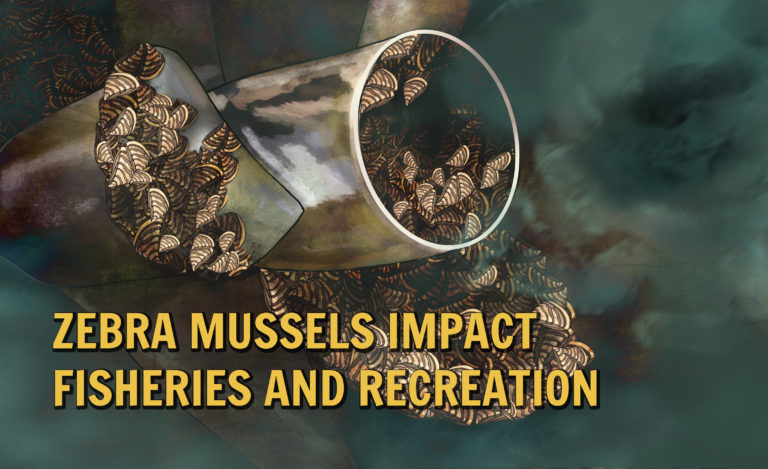
Presented by: Dr. Bret Shaw, Department of Life Sciences Communication & Division of Extension at the University of Wisconsin-Madison, and Tim Campbell, Aquatic Invasive Species Outreach Specialist at the University of Wisconsin Sea Grant Institute

Message frames are often used to communicate about invasive species due to the additional meaning they provide. They appear in calls to action like “join the battle against invasive species,” “unwelcome exotics,” or “Stop Aquatic Hitchhikers.” However, little is known about how stakeholders respond to these message frames. This research tested five common message emphasis frames used in invasive species communication. These message frames were placed in social media advertisements about zebra mussels to determine the impact each message frame had on user online behavior. For cost-perclick (CPC), ANOVA showed effects for framing and gender. Model coefficients revealed that Hitchhiker and Protective had significantly higher CPC than Science, and that women had a higher CPC. For comments, ANOVA showed effects for framing and gender. Model coefficients revealed that no frame had a significantly different effect on comments than Science, and that women commented on posts less. For shares, ANOVA showed effects for framing. Model coefficients revealed that Hitchhiker was shared more than Science. It is important to note that neither Militaristic nor Nativist outperformed Science on any measured outcome. Coupled with ethical considerations, our results suggest the use of Nativist and Militaristic frames are not necessary to influence online behavior. Message frames without ethical issues can be used to achieve the outcomes we tested without compromising message effectiveness. Within their recent published article, the speakers provide background on commonly used invasive species message frames, explain their methods for testing how they impact user behavior, and suggest limitations and applications of this work.
Dr. Bret Shaw is an Environmental Communication Specialist for the Division of Extension and an associate professor in the Department of Life Sciences Communication at the University of Wisconsin-Madison. He focuses on planning, implementing, and evaluating social marketing campaigns dealing with natural resource management issues such as water quality, land use, and environmental conservation. He teaches courses on social marketing, environmental communication, and science communication. Shaw received his Ph.D. in Mass Communication at UW–Madison, where his teaching and research experience related to strategic communication. After completing his graduate work, he worked as a market research manager in the technology industry in California. Shaw has published in a diverse range of peer-reviewed journals including Society and Natural Resources, Journal of Environmental Psychology, Science Communication, Conservation Biology, Journal of Forestry, Environmental Management, Social Marketing Quarterly, Lake and Reservoir Management, Energy Policy, Politics and the Life Sciences, Journal for the Study of Religion, Nature & Culture, Human Dimensions of Wildlife, and American Behavioral Scientist, among others. He has also published extensively in the health communication literature with financial support from the National Institutes of Health and private philanthropic organizations, focusing on how to use technology to help people living with cancer or substance abuse disorders. He has received national and international media attention for the studies he has published.
Tim Campbell joined the Wisconsin Sea Grant Advisory Services team in 2011. Campbell engages communities, organizations, local government officials and other coastal stakeholder groups and helps them incorporate aquatic invasive species (AIS) prevention actions into their existing activities. Campbell also works closely with the numerous professionals working on AIS issues in Wisconsin to coordinate education and outreach efforts. He is the current Chair of the ANS Task Force’s Education Committee.